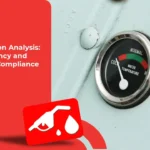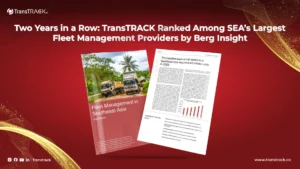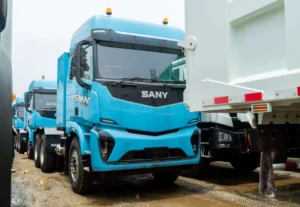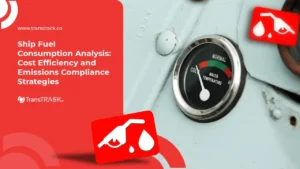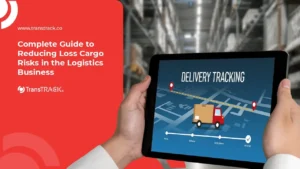It’s Important to Understand What is Detention in the Import Business
Posted on December 11, 2023 by Nur Wachda Mihmidati

The import business is not only profitable, but there are also a number of challenges that need to be overcome in order for operations to run smoothly. One of the things that is often highlighted in the import business is detention.
Detention is one of the crucial aspects in the logistics world, especially the challenging import business. In the context of import business, what exactly is detention? How does it impact business, and are there ways to avoid it?
In this article TransTRACK will discuss detention in detail, understand what it means, and explore its impact on import businesses, including effective ways to avoid detention costs that may arise.
Definition of Detention
Detention is a logistics term also known as detention, referring to the delay in returning a container after it has completed the loading and unloading process. Simply put, detention can be interpreted as the holding or delayed return of a container to the terminal or container yard.
However, in the context of the import business, detention has a more specific meaning. It refers to the additional time given by the terminal operator to the importer or owner of the goods to return the container after the completion of the loading and unloading process.
Delayed container return can occur when goods have arrived at the port of destination and are then held for longer than the time allowed to return the container to the terminal. In many cases, the causes of delayed container returns involve delays in the loading and unloading process, unmet administrative requirements, and unfavorable weather conditions.
Impact of Detention on Import Business
Not understanding the delayed return of containers can have a serious impact on the import business. One of the impacts is the additional costs that must be incurred. When there is a delay in returning the container, as a business, you will be charged additional fees if the container is not returned on time. These additional fees involve daily payments or fixed fees as per the terminal’s policy.
In addition, delays in returning containers can also slow down the flow of your import business. Delays in returning containers can cause delays in delivering products to customers, which can ultimately lower your business reputation and customer satisfaction.
How to Avoid Detention
Detention, or the holding of containers after the unloading process is complete, can be a serious obstacle in the import business. Therefore, understanding how to avoid container detention is a key step to maintaining the smooth operation of your business. Here is a complete, detailed, and itemized guide on how to avoid holding of containers in import business.
Careful Planning
Careful planning is the main foundation in avoiding holding of containers. Make sure you have a realistic shipping schedule and enough time to handle potential obstacles that may arise during the import process. Pay attention to factors such as weather, holidays, and possible delays at the port of destination.
Good Cooperation with Logistics Parties
Establish good cooperation with logistics parties, including terminal operators. Effective communication can help ensure that all parties involved understand each other’s deadlines and responsibilities. Discuss in detail the processes and policies related to container detention so that all parties can collaborate well.
Active Monitoring
Actively monitor the movement of your containers. Implement an efficient monitoring system to ensure that you can detect potential problems early on. Proactive monitoring allows you to take quick and appropriate action to avoid delays that could lead to container detention.
Optimize Document Process
Delays in document release are often the cause of container detention. Ensure that your internal documentation processes are running smoothly and efficiently. Training relevant staff and utilizing technology to automate some processes can help minimize the risk of document delays.
The Importance of Truck Appointment System (TAS) in Overcoming Detention
Truck Appointment System (TAS) is an innovative solution that can help companies overcome container detention challenges in the import business. By providing more structured planning and efficient time management, TAS is the key to improving logistics efficiency and avoiding the risk of container detention. Let’s discuss the importance of Truck Appointment System in overcoming detention.
Optimization of Truck Visit Schedule
One of the main advantages of the Truck Appointment System is its ability to optimize truck visit schedules. With TAS, companies can plan and time the arrival of trucks to the terminal more precisely. This avoids potential delays and detentions.
Minimize Truck Waiting Time
Truck waiting time at terminals can be a significant cause of detention. With TAS, companies can avoid long queues at the terminal due to better timing. Trucks that arrive at the terminal according to the planned schedule can immediately continue the loading and unloading process, reducing waiting time that can cause detention.
Improved Container Time Management in the Terminal
The Truck Appointment System not only focuses on trucks but also helps manage container time within the terminal. By taking into account the terminal’s capacity and overall truck visit schedule, TAS ensures that containers can be efficiently managed in the storage area, reducing the possibility of detention due to late return of containers.
Real-time Monitoring and Prediction
Another advantage of TAS is its ability to provide real-time monitoring of truck and container movements at the terminal. With this information, companies can predict potential problems or delays, so they can take proactive measures to prevent detention.
All of these benefits of Truck Appointment System (TAS) you can get in TransTRACK. Contact us now and request a free demo to understand the benefits of TAS to the fullest.
In the world of import business, understanding what detention is is key to maintaining smooth operations. Detention is not just a delay, but also potentially an additional cost that can hurt your business. With careful planning, good cooperation with relevant parties, and the use of technology, you can avoid or at least minimize the risk of detention in your import business.
Recent Post
Topic :
 Bahasa Indonesia
Bahasa Indonesia





